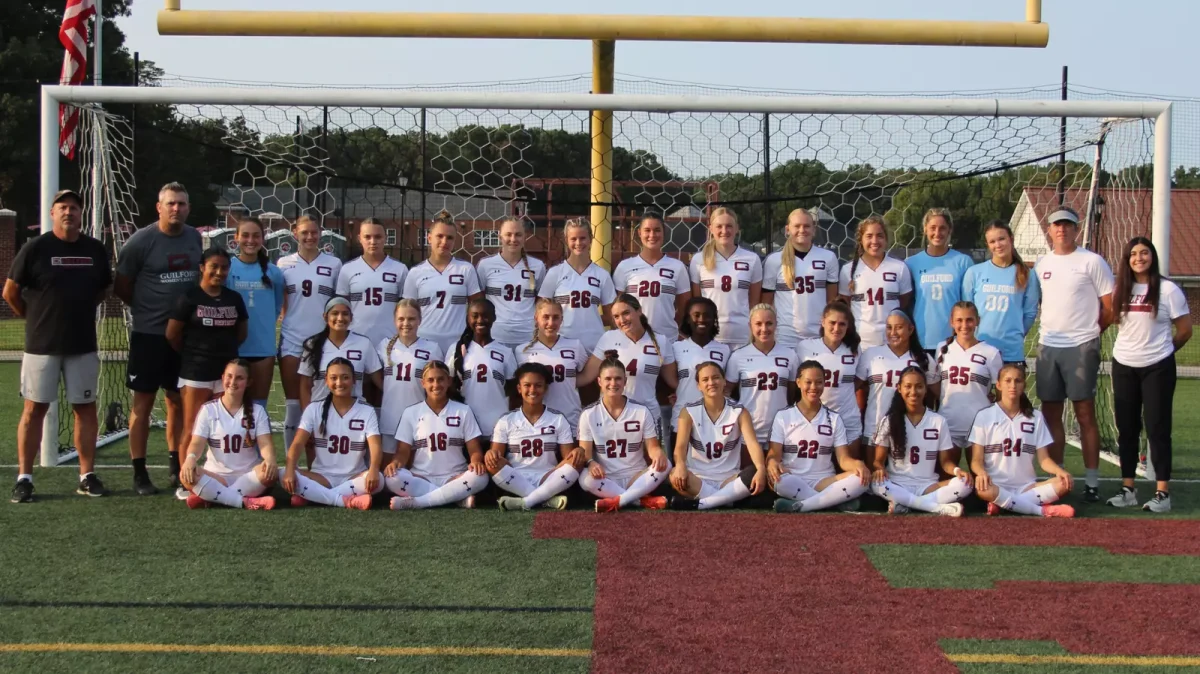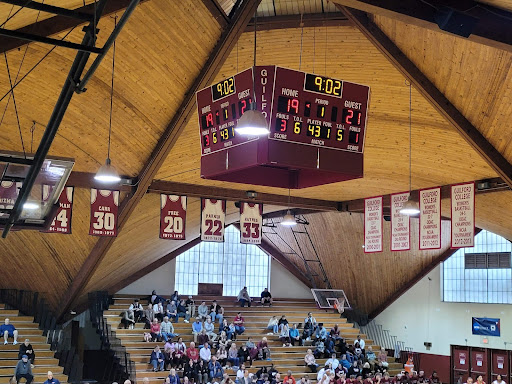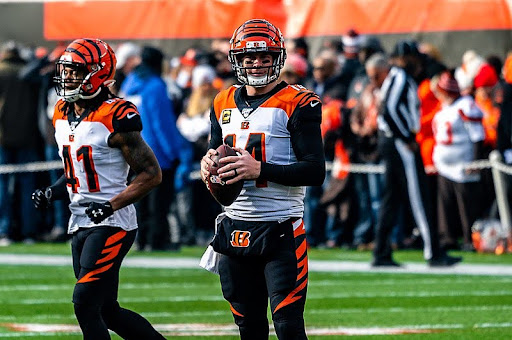There are some fans who wear jerseys that they have chosen not to wash for decades. Others decorate their faces in colorful face paints or shave their heads as if they were preparing for war.
These are rituals done in the name of support, and their passion encourages the athletes to want to win for them. However, I wonder if it is understood that the athlete plays not only for the fans, but for their fellow team members, their school and a continuous list of additional reasons that include everything and everyone but themselves.
“I take into consideration what everyone wants me to do, then I consider what I can do and have done in the past,” said first-year forward Alston Thompson in an email interview. “If I’m not up to others expectations but we win, then how much does my personal performance matter?
“You’re only as great as your team.”
When I walked into the Ragan-Brown Field House on Wednesday, Feb. 10, to watch the Quaker men’s basketball team play against Emory & Henry, the game had already started.
It is always so loud when I enter a men’s game. However, I found that as I walked behind the bench of the visiting team, they were relatively quiet. I am not accustomed to the ghost town-like ambience and quickly made my way over to sit behind our Quakers, where the bleachers shook from the feet of those that supported them.
I attended the game wanting to know how our Quaker men responded to living up to what their fans expect of them, what they expect of themselves and those historical moments they had obtained in the past.
From the first time I saw the Quaker men’s basketball team play, I thought of the movie “300.” Every movement the Quakers made was done as a team. It is as if they are pieces of a bigger whole, and their playing strategy against the other teams they go up against is fierce.
I am reminded of the team’s passion as first-year forward Carson Long collides head-first with the line of metal chairs that make up the team bench in an effort to save the ball. His team helps him up and without a blink of an eye, he is back on the court as if nothing has happened. I have seen NBA players remain on the floor after such crashes.
“All I want to do is win games,” sophomore guard Justin Miller explained in an email interview. “Whether I had a good game or not it doesn’t matter as long as we win.”
From time to time, I found myself watching the visiting team to see how they and their supporters responded during the game. While the Quaker supporters acknowledged great skill whether it led to a score or not, the Wasps supporters, along with the team, only buzzed when wins were involved.
It is possible that the weight of the game could have silenced the Wasps. But the Quakers have found a way to balance the weight they carry that does not prevent them from “showing up,” both mentally and physically, at every game. The added beauty to their presence is that it comes in the form of a team mindset and not one of individuality.
“Our coaching staff contributes to this mindset by stressing that our basketball team and program is one big family that looks out for each other whether on or off the court,” said associate head coach Caleb Kimbrough in an email interview.
“I think it is important to be able to listen to people you trust and take their advice. However, it is equally important to understand that the overall goal is to reach your full potential as a team. It is not so much about your individual success.”
The game has gone into overtime. The Wasps have finally broken their silence. However, they still cannot compete with the rumbling in the stands. The game ends with the Quakers losing to Emory & Henry 81-73.
As I go to leave the game, I am stopped by athletic trainer Gary Rizza who asks me if I am going to stay to watch the Quaker women’s team play. I reply that I will be writing about them again in a few weeks and go on to rattle off a list of things that I must do.
It was not until I got to my car that I realized that wasn’t the answer he was looking for.
To understand how an athlete handles carrying the weight of the world on their shoulders and still manages to think of everyone but themselves, one just needs to take a look at the Rizzas, Kimbroughs, Tom Palombos and Stephanie Flaminis of the Quaker athletics world.
Because it is they who have taught our athlete’s that the first step of balancing is that there is no “I” in team.






